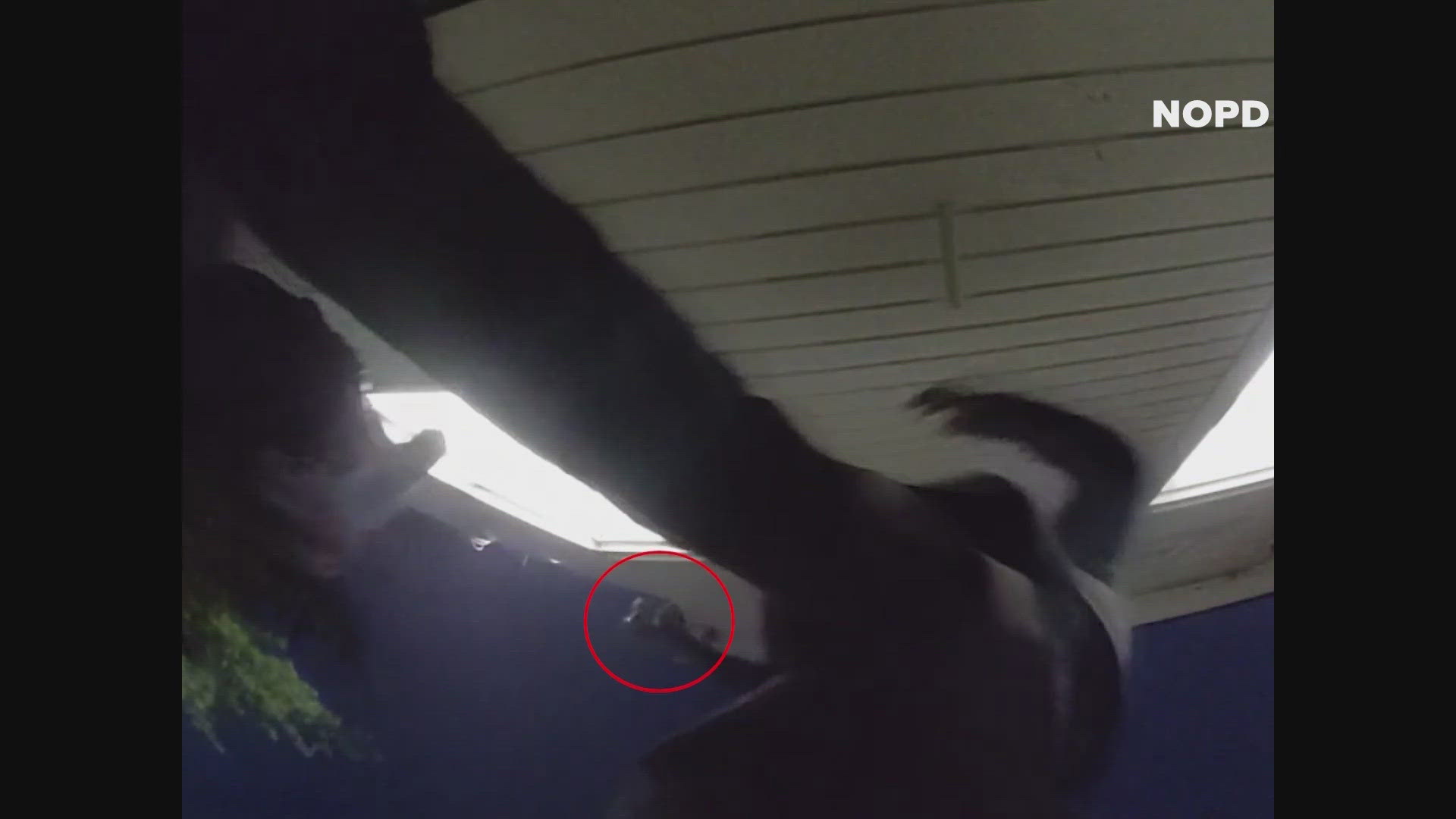NEW ORLEANS — Oris Buckner III, a Black former police detective and whistleblower who spoke out about police brutality in the aftermath of a white officer's 1980 shooting death in New Orleans, has died. He was 70.
Buckner participated in but then reported on the interrogations of Black people questioned after a young white officer was killed in 1980 near a predominantly African American housing project in Algiers, the city's west bank.
The ex-officer died unexpectedly last Wednesday in Houston last, his wife, Stephanie Buckner, told The Times-Picayune/The New Orleans Advocate on Friday. Family members told the newspaper Buckner had died from a sepsis infection while battling leukemia and diabetes.
Buckner was the New Orleans department's second Black homicide detective and his whistleblower testimony that year cost him dearly. He spoke out about the treatment of Blacks questioned in the days after the still-unsolved shooting death of Officer Gregory Neupert.
“He was vilified by his fellow officers for violating the blue code. He and his family were subject to physical threats,” said Morris Reed, then a federal prosecutor who worked on the case. “He was stigmatized. They ostracized him. I think it worked on his psyche.”
At the time, New Orleans police killed four Black men in raids. Nobody was charged with the killings, but seven officers were indicted on federal brutality charges alleging that they beat others.
The indictment alleged that officers detained people, sometimes in cells, for up to 16 hours.
“Some of these individuals were handcuffed or tied to a chair during their questioning," the 5th U.S. Circuit Court of Appeals wrote in a summary of other allegations. "Several were hit with fists or books or both. Johnny Brownlee and Robert Davis were also ‘bagged,’ a process whereby the officers placed a bag over the victim’s head and temporarily sealed the bottom to cut off the air supply.” Both Davis and Brownlee also accused officers of taking them separately to secluded or wooded areas and beating them, the ruling said.
Four of the officer were acquitted. Three against whom Buckner testified were convicted in the beating and “bagging” of Davis. They also were found guilty of conspiring “to resort to illegal means to solve Neupert’s murder,” the 5th Circuit wrote in upholding their convictions.
“Buckner, who testified under a grant of immunity, admitted that he had participated in the beating,” the opinion said.
It said he didn't testify about another of Davis' allegations — “that three officers drove him from police headquarters to a secluded area in Algiers where he was beaten and threatened with a gun by several policemen.”
“After hearing all the evidence, the jury was faced with a basic conflict: Davis and Buckner testified that Davis had been beaten and defendants maintained that he had been treated properly," the 5th Circuit opinion said. "The weighing of conflicting evidence and inferences and the determination of the relative credibility of witnesses is a function of the jury.”
Civil rights attorney Mary Howell, who represented people abused in the days after Neupert's killing, said Buckner ended up being assigned to the city's Taxicab Bureau “checking taxicab medallions" after his testimony.
“The truth was out there in the community because people knew these things were going on. There were too many stories. But knowing it and proving it were two different things,” said Howell. “It’s because of Oris’ testimony that it was proven beyond a reasonable doubt.”
Buckner’s sister, film actor Carol Sutton, died in 2020.
Buckner, an ordained minister who earned a degree at Loyola University while on the force, moved to Houston after Hurricane Katrina swamped New Orleans in 2005. He taught criminal justice at Lee College, a community college in suburban Baytown, Texas.
“I think my father was more of a prophet of God than a crime-stopper,” Oris Buckner IV, one of his six children, told the newspaper. “His work is tied up to his faith, and that’s who he was. His life was walking with God and using what God had blessed him with to protect other people and try to do the right thing.”



